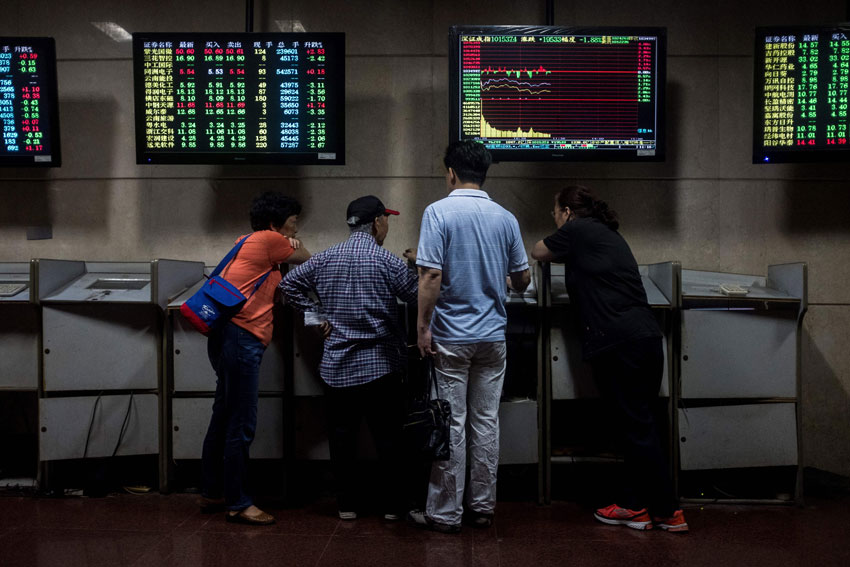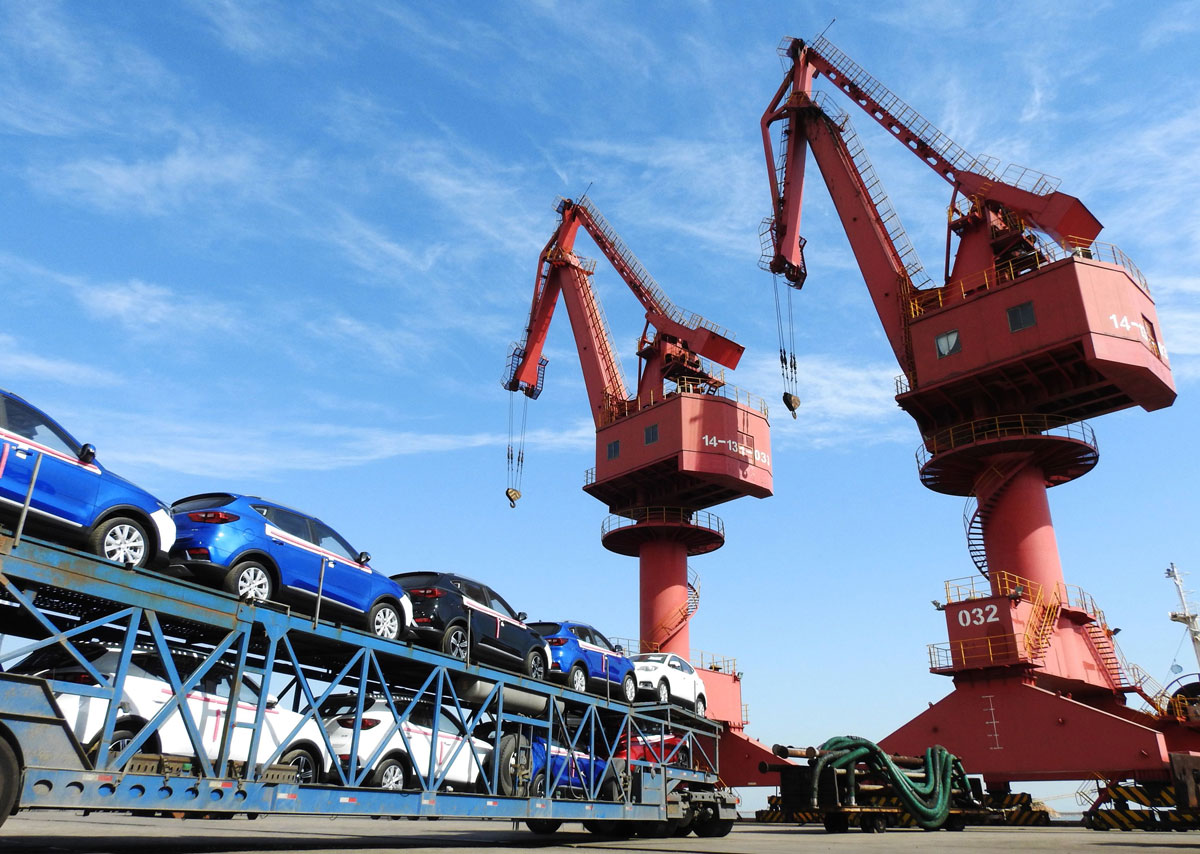U.S. Hurting Its Own Credibility with U-Turn on Trade: China
Cars to be exported are seen at a port in Lianyungang in China’s eastern Jiangsu province on May 31. China, on May 30, lambasted “sudden flip-flops” in U.S. policy after President Donald Trump said he was moving to finalize trade sanctions against it – even as a U.S. delegation arrived in Beijing for talks. (AFP/Getty Images)
China said, May 30, the Trump administration is hurting its own credibility by every “flip-flop and U-turn” on trade tariffs, and warned that it does not want a trade war but will take forceful measures to defend its legitimate interests, writes K.J.M. Varma.
Hitting back at the Trump administration’s threat to impose a 25 percent tariff on $50 billion goods imported from China, Foreign Ministry spokesperson Hua Chunying said, “In international relations, every flip-flop and U-turn by a country will undermine and hurt its own credibility.”
She said the U.S.’ threat to raise duties on Chinese goods goes against the consensus the two countries reached in Washington and jointly announced earlier in May.
She urged the U.S. to keep its “word and work” with China according to the spirit demonstrated in the joint announcement.
“China does not want, but is not afraid of, a trade war,” Hua said. “China will surely take resolute and powerful steps to safeguard its legitimate rights if the U.S. insists on acting recklessly.”
Hua also called for handling trade disputes through talks on an equal basis and in a constructive way, which is “in line with the fundamental and long-term interests of both the Chinese and American people, as well as the common aspirations of the international community.”
The White House yesterday announced that it will impose a hefty 25 percent tariff on the $50 billion worth of Chinese goods containing “industrially significant” technology including those related to the ‘Made in China 2025’ program, days after the two sides reached an agreement and vowed not to launch a trade war against each other.
The announcement came just ahead of U.S. Secretary of Commerce Wilbur Ross’s visit to China.
China’s Ministry of Commerce said, May 29, that the U.S. statement is contrary to the consensuses the two sides previously reached in Washington.
The ministry said the White House tactical statement is both unexpected and within expectation.

“Whatever measures the U.S. takes, China has the confidence, capability and experience to defend the interests of Chinese people and the core interests of the country,” it said.
It urged U.S. to act in accordance with the spirit of recent bilateral joint statement.
The trade spat between the top two economies of the world began last month with President Donald Trump imposing tariffs on steel and aluminum imports into U.S.
China retaliated by imposing additional tariffs worth about $3 billion on 128 American products.
Trump, while demanding China to reduce the $375 billion by $100 billion retaliated with $50 billion tariffs on Chinese products.
In retaliation, China announced plans to impose new tariffs of 25 percent worth $50 billion on 106 American products including items like soybeans which could hurt American farmers. The two countries have not yet implemented their tariff increases.
During the media briefing, the Foreign Ministry spokesperson also expressed concern over reports that the U.S. is planning to restrict visas of Chinese students studying advanced subjects like robotics, aviation and high-tech manufacturing to one year.
According to report, Chinese citizens seeking visas will need special clearance from multiple U.S. agencies if they work as researchers or managers for companies on a U.S. Commerce Department list of entities requiring higher scrutiny.
“People to people exchanges constitutes important foundation in international relations,” Hua said.
Visa facilitation is reciprocal and serves the interest of both the countries, she said, adding that both the countries need to take measures to facilitate visas to create more favorable conditions than doing the contrary.
Of the more than a million foreign students who enrolled at universities in the U.S. in 2016-17 over 350,000 or about 35 percent, were Chinese, the Open Doors study by the Institute of International Education, a non-profit organization supported by the U.S. government, said.
Over 1.65 lakh Indian students enrolled in U.S. universities in 2016.
Observers say any visa restrictions on high tech field education could hurt China’s big push into high tech manufacturing including robotics and artificial intelligence.


